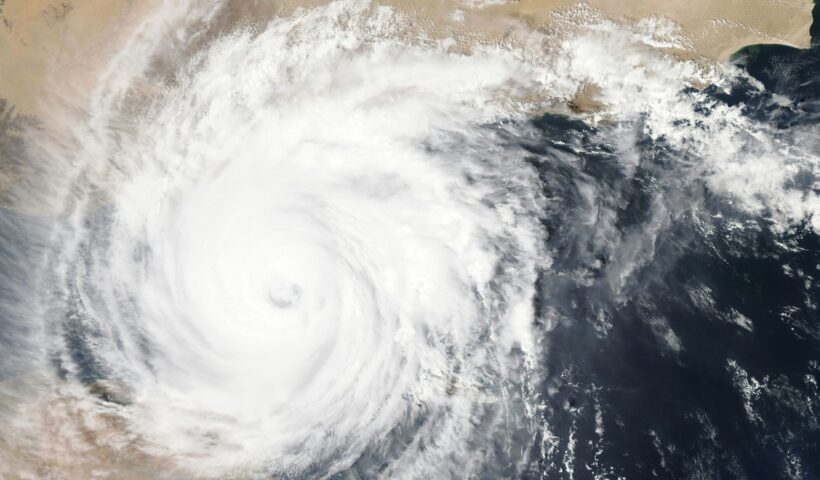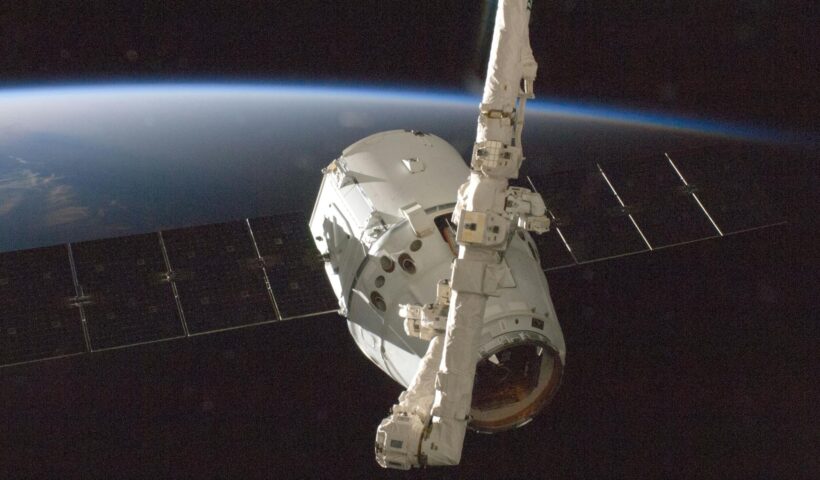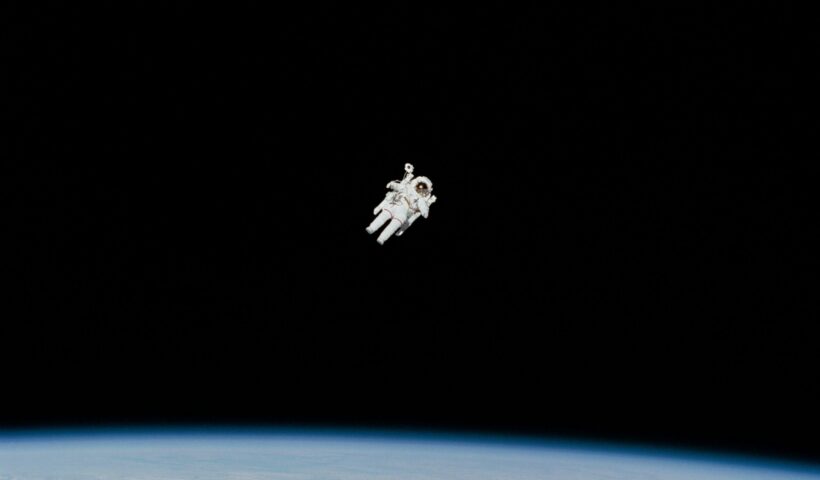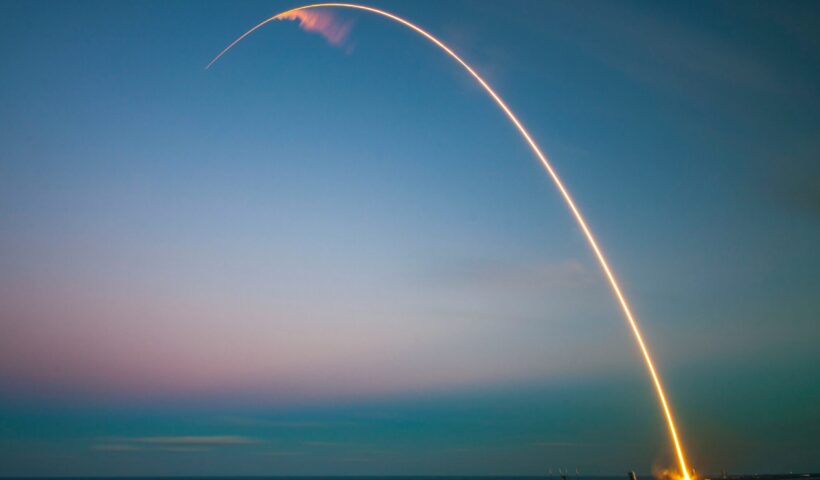The National Institutes of Health (NIH) has stopped considering grant applications in the wake of the Trump administration’s funding freeze. This has stalled around 16,000 grant applications competing for $1.5 billion in NIH funding to develop cutting-edge treatments. This freeze threatens lives across the country, as scientists lose jobs, local economies are damaged, and the health of patients fighting life-threatening diseases is put in jeopardy.
View More NIH Funding Freeze Stalls Applications to Public Medical Research FundsAuthor: Rachel Pak
Returned Asteroid Samples Suggest the Building Blocks for Life are Scattered Across the Universe
Asteroid samples collected by NASA’s OSIRIS-REx not only contain the pristine building blocks for life, but also the salty remains of an ancient water world. The spacecraft was able to help unlock these discoveries because it collected samples directly from the asteroid and carefully preserved them on the way back to Earth. These findings support the idea that asteroids delivered the building blocks of life to our planet early in its history, and may have delivered them elsewhere in the solar system. The success of this mission justifies the development of future sample retrieval missions to other cosmic bodies within our solar system.
View More Returned Asteroid Samples Suggest the Building Blocks for Life are Scattered Across the UniverseFossil Fuels vs. Renewable Energy: How to Power the Tech Industry
After taking office, President Donald Trump promised to increase coal combustion to generate power needed for AI data centers. However, new coal plants take time to fire up and are not suitable sources of backup power. Therefore, natural gas and geothermal energy offer the most likely solution to the rising electricity needs of the tech industry.
View More Fossil Fuels vs. Renewable Energy: How to Power the Tech IndustryUranus Isn’t Actually That Weird: New Research Suggests Potential for Life on the Distant Planet
When Voyager 2 became the first and only mission to fly by Uranus in 1986, the data collected by the probe defined the way astronomers understood the ice giant for the next 40 years. However, a new study published suggests Voyager 2 just happened to zoom by the distant planet on a particularly weird day. These findings mean it might be easier for future missions to search for oceans beneath the surface of Uranus’ moons. This study reminds us that not only are we constantly making new discoveries, but that discoveries we considered facts are ever changing.
View More Uranus Isn’t Actually That Weird: New Research Suggests Potential for Life on the Distant PlanetFighting Hurricane Misinformation: Meteorologists Make the Climate Connection Amidst Storm of Lies
The warnings preceding Hurricane Helene and Hurricane Martin were more accurate than ever before due to advances in forecasting methodology and technology. However, meteorologists have never faced such intense skepticism, hatred, and conspiracy-minded pushback. Many have been accused of steering the hurricanes, and others have faced threats of violence online. These false claims have been viewed more than 160 million times in the days following the hurricanes, and have even been pushed by government officials. However, in an effort to fight these false narratives, government authorities, civil society organizations, and meteorologists are now pushing back on disaster-related misinformation.
View More Fighting Hurricane Misinformation: Meteorologists Make the Climate Connection Amidst Storm of LiesHow ChatGPT Can Combat Conspiracy Theories
Convincing a conspiracy theorist that they are wrong is usually a futile effort, but ChatGPT might have better luck. New research suggests that debating with a sympathetic chatbot may help pluck people who believe in conspiracy theories out of the rabbit hole. The study “Durably Reducing Conspiracy Beliefs Through Dialogues With AI,” published on September 13 in the journal Science, shows that conversing with a chatbot can weaken people’s beliefs in a given conspiracy theory. This study demonstrates that, although there exists the potential for generative AI to supercharge disinformation, it can also be part of the solution.
View More How ChatGPT Can Combat Conspiracy TheoriesEyes in the Sky: Ethical Considerations of Commercial Satellite Surveillance
Satellite data is an indispensable resource that now constitutes a large portion of the commercial world in the United States. However, as satellite technology improves, the collection and distribution of high-quality data poses a threat to national security and personal privacy. Further, the nature of international space legislation leaves the U.S. vulnerable to collect and distribute threatening data. This calls the ethics of satellite surveillance into question. Engineers, the last barrier between companies and increasingly detailed data, must step up and consider the ethics of further developing satellite capabilities.
View More Eyes in the Sky: Ethical Considerations of Commercial Satellite SurveillanceFlooding in the Desert Caused by Climate Change?
Last week, the Arabian peninsula was hit by unprecedented rainfall, with parts of the desert nation United Arab Emirates receiving 10 inches of rain within 24 hours.
While this extreme weather mimics the patterns climate scientists have long warned about, some wonder if cloud seeding could instead be to blame for the catastrophic storms. However, scientists have debunked that theory, highlighting a public reluctance to believe that the global climate crisis is creating these extreme events. Linking these severe weather events to climate change is the first step to protecting human lives.
Engineering Ways to Care for Astronauts’ Mental Health
Amidst plans for space missions designed to establish a stronger human presence in space, concerns rise for the mental health of the astronauts. These astronauts, such as those selected for NASA’s Artemis missions, will embark on trips into deep space that will last months or even years away from Earth’s familiar environment and their loved ones. Since spacecraft tend to have an isolated and confined nature, NASA engineers are devising strategies to safeguard the mental health of their astronauts.
View More Engineering Ways to Care for Astronauts’ Mental HealthRising Tensions in Low Earth Orbit
Recent intelligence suggests that Russia is developing a space-based nuclear weapon designed to attack America’s extensive satellite network. While details are unknown, the weapon is believed to target United States military surveillance and commercial communications satellites. However, there is no immediate threat to the public, as Russia cannot deploy a nuclear weapon in space without breaking an international treaty and damaging all the satellites in low Earth orbit, including their own. Despite the uncertainty surrounding the development, one thing is becoming clear: space may serve as an international battleground in the near future.
View More Rising Tensions in Low Earth Orbit









